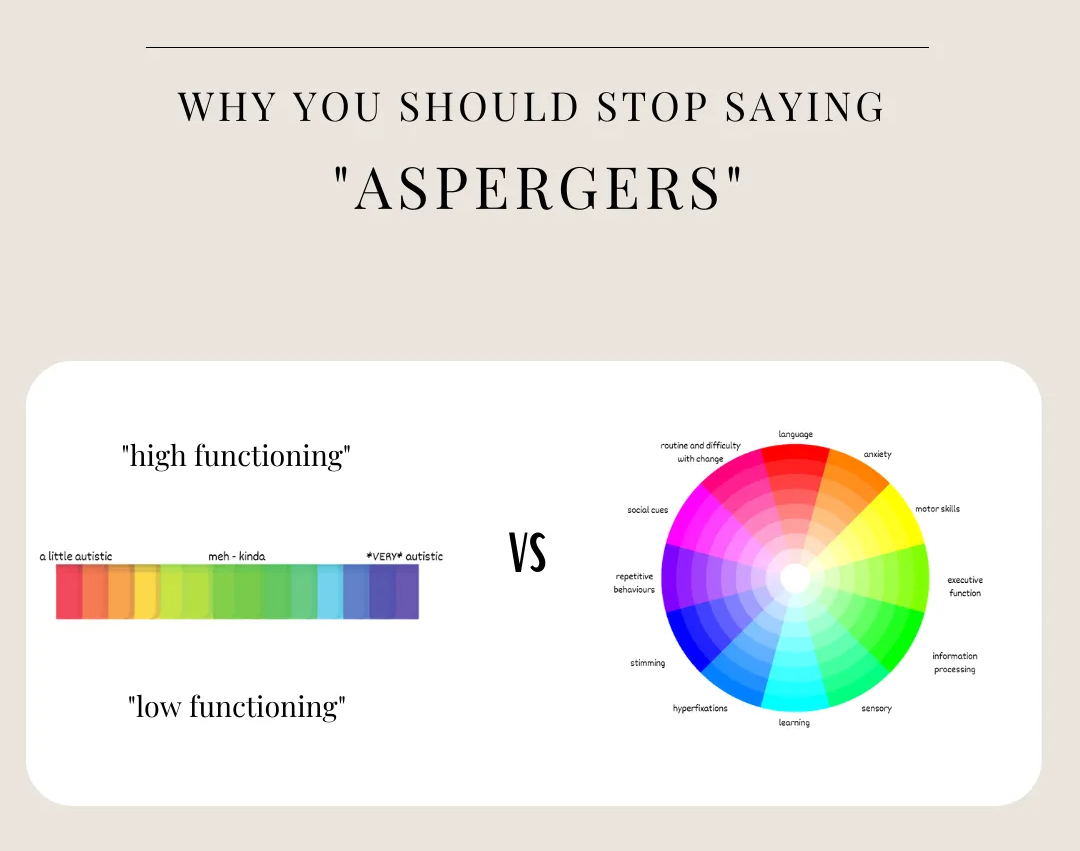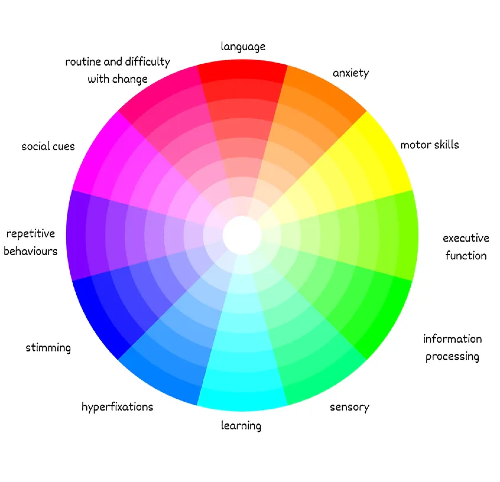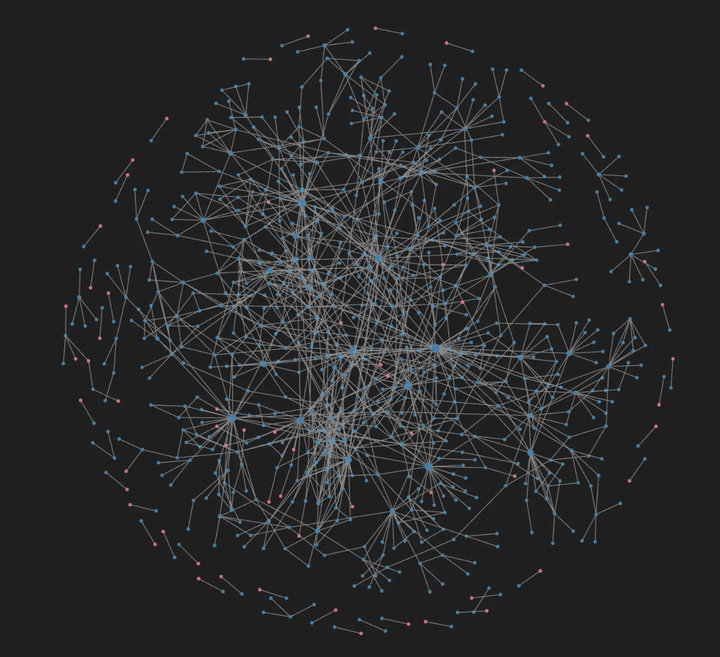Why You Should Stop Using "Aspergers" & Functioning Labels

There are a lot of misconceptions and misinformation regarding autism and neurodivergence that don't get corrected.
If you have a passing knowledge of autism then you might've heard of Asperger's Syndrome, a term used to describe someone, (usually a boy/ AMAB), who has higher than average intelligence, a difficult time creating and managing interpersonal relationships, struggles with social norms, and has a monotonous voice. You're likely thinking of Sheldon Cooper and that's exactly it!
Before getting onto the rest of the post, there is a blanket trigger warning for this post. There will be mention of Nazis, the Holocaust, genocide, eugenics, etc. If any of these are upsetting to you, feel free to click out.
The term Asperger's Syndrome was coined after an Austrian named Hans Asperger, who was revered world wide for over 60 years. In 1938, he designated a group of children with distinct psychological traits as "autistic psychopaths" (as if that isn't a red flag already), and published a comprehensive study in 1944.
"Asperger's Syndrome" was relatively unknown in English-speaking medicine, until in 1981, a psychiatrist called Lorna Wing published a paper that brought Hans Asperger's observations to the attention of English-speaking physicians, and thus the term Asperger's Syndrome was born. However, it wasn't until 1994 that the American Psychiatric Association recognised Asperger's as a diagnosis and added it to the DSM-4. The condition was characterised by "unusually deep, narrow interests, and challenges in social communication and interaction, in people with average IQ or above and no history of language delay.".
If you are thinking, "Hold on... Austria? In the 1940s? Isn't that - "
Your instincts are correct.
Documentation and evidence was scarce, and over time, Asperger became an anti-Nazi hero. A man who bravely saved hundreds of autistic children from imminent demise in the Nazi's "euthanasia" programme. He would talk up these autistic children's parents, saying that he wanted to supposedly 'protect them from the mass forced sterilisation of disabled people', and from becoming victims of the T4 program (a "euthanasia" program that killed 300,000 disabled people), by inducting them into his “Heilpädagogik” – (therapeutic pedagogy programme). This has been shown to be untrue.
Edith Sheffer has been researching this topic and has dedicated much of her life to tearing down this saint-like image that people have had of Asperger. She drew on records discovered by a researcher named Herwig Czech that revealed that Asperger himself, signed paperwork that transferred a minimum of 42 of his own patients to the Am Spiegelgrund clinic, where almost 800 kids died of neglect or lethal overdoses.
Asperger also openly endorsed these same forced sterilisation laws that he claimed to be saving those autistic children from.
"Citing his words that some people were “a burden on the community” and that “the proliferation of many of these types is undesirable for the Volk, ie, the task is to exclude certain people from reproduction”.
I haven't even talked about the children that didn't qualify for his program yet.
Hans Asperger examined Herta Schreiber (age 3) after a bout of diptheria left her with a brain injury.
— Historic.ly (@historic_ly) June 27, 2020
One month later, on September 2, 1941, the doctors euthanized her for it.
He was one of the first doctors to join the Nazi Party. https://t.co/NsDeDrUlz8 pic.twitter.com/w29gkWQX4X
Herta Schreiber
Within this article, lives a profile of a 2 year old little girl called Herta Schreiber, who was one of the patients examined by Asperger. After examination, he proceeded to call this girl an "unbearable burden to the mother", and sent her to Spiegelgrund. She died of pneumonia at three years old, induced through prolonged administration of barbiturates. Her father, who was at war, wasn't informed.
Asperger consistently used physically, and developmentally disabled children, who were traumatised, taken away from their homes and families, as guinea pigs, and if they didn't exhibit the behaviours he wanted, or no longer served a purpose to him, he sent them to their deaths. Painful, sickening deaths, with no family to comfort them, or love them in their final moments.
About Functioning Labels - Please Stop.
Asperger's is often referred to as "high-functioning autism", meaning that the person exhibits no intellectual disabilities but still lacks social skills and communication.
There are many reasons functioning labels aren't or shouldn't be used anymore, some having more to do with Asperger than others, but I'll start with practicality. Saying that someone is high/ low functioning doesn't tell you as much as you might think it does, and most autistic people would tell you that.
For example, say you're babysitting an autistic child for a friend. They walk in, hand over the kid's stuff and say "Just so you know, they're low-functioning.". You will immediately have follow up questions because that's not nearly enough information. What areas does this child need help in? Can they verbally communicate? Can they feed themselves? Can they go to the bathroom alone? Without follow up questions, you still know next to nothing about that child.
Similarly, if that same parent walked in and said "They're high-functioning", you would assume that they are in no need of resources or extra help, when in reality, a large study showed that "On average, autistic children without intellectual disability have functional scores 28 points below their IQ". So that same child that you thought would have no problems doing things themselves, will struggle with tying their shoelaces or asking for things rather than just taking them (these are called "adaptive behaviours").
To quote Andrew Whitehouse, a professor of autism research that was involved in this study; “While IQ is correlated with functional ability, it’s actually a really weak predictor of the level of the daily living skills that these individuals have,”
Aside from being far from practical or efficient both in the medical field and out in the community, these terms were used to figure out who lived, and who was carted off to die. He used arbitrary traits like perceived intelligence and physical health/ comorbidities to determine which child "deserved" to live. Not exhibiting outward intelligence and being labelled "low-functioning", led to people's deaths. Using those labels are incredibly hurtful, and rude.
The fundamental issue is how people see autism, because functioning labels have been replaced with "severe" or "profound", and once again, that tells you very little about an individuals needs and isn't very useful. People think that autism is like a scale, where you're either very autistic, or a little autistic.
Like this;

In reality, it looks more like this;

The differences in diagnostic criteria for Autism and Aspergers were minimal, and researchers realised that landing on a lighter colour segment on the same diagram didn't warrant a new disorder. There is a lot of diversity in autistic people.
All of this contributed to the American Psychological Association's (APA) decision to take "Asperger's Syndrome" out of the fifth edition of the Diagnostic and Statistical Manual of Mental Disorders (DSM-5), and the addition of its criteria, along with all other disorders like PDD and autism, under one Autism Spectrum Disorder (ASD).
When the change first occurred there was apparently a lot of concern (especially amongst parents), that their previously Aspergers children being under the Autism spectrum would bring them a lot of stigma, and that sentiment is still present today.
However, I'd urge people to ask themselves why they don't want to be associated with other autistic folks. The idea that Asperger's is "Autism but for smart people" is dangerous; it uses that same principle Asperger used to discard autistic people with learning disabilities. It's essentially saying "Yes, I'm autistic, but don't worry, I'm not one of those autistics", and it's been shown to create more division and stigma.
This is why it's so important to use person-first language (i.e. Autistic woman, not woman with autism) and celebrate the diversity amongst autistic people.
The truth about this 'brave' man is that he was a Nazi, who sent children who he felt weren't "worthy to live" to their deaths, without second thought. The foundational ideas and research of Autism Spectrum Disorder came from the exploitation of some of the most vulnerable children, and a person who was striving for a society that was the opposite of accepting of neurodiversity.
The best minds around the globe have been autistic, from Einstein, to Darwin to Tim Burton!
Since the beginning, Autism has been something to be used or to be cured. ASD doesn't need a cure, professionals agree that what is necessary, is acceptance and inclusion, because you can't separate autism from the person, and we wouldn't be who we are without it.
